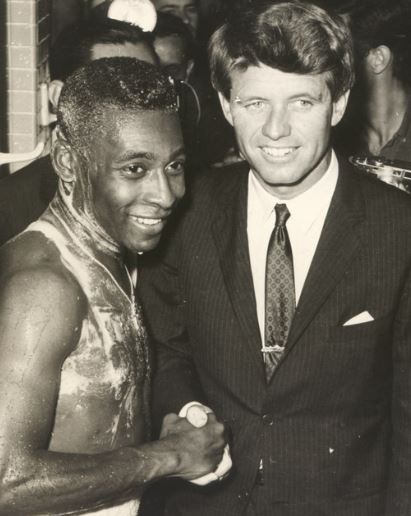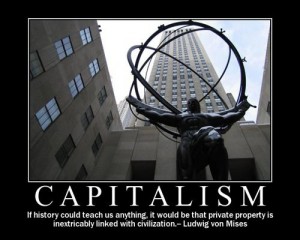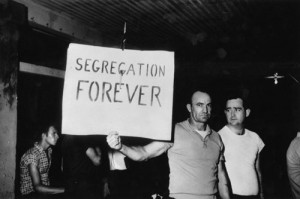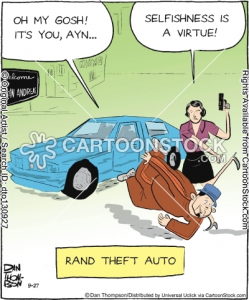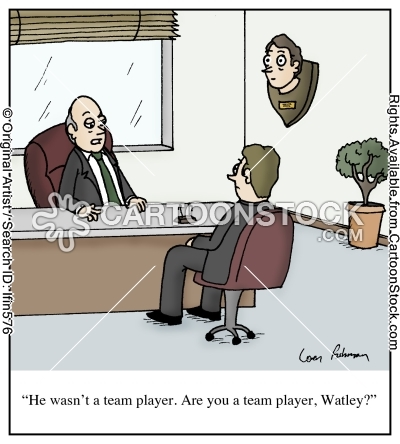Note: Those who have followed the events of the past month will be relieved to learn that Billy Lee and his illegitimate son, Billy Lee Junior, have reconciled. (Can we all just accept it and move on?)
Billy Lee encouraged Junior to write this newest essay, Segregation Tax, to reassure the little b*****d of his unconditional love and trust. The matter of Junior defacing our offices and almost destroying our web-site is behind us.
No hard feelings, says Billy Lee, no matter what the haters say.
The Editorial Board
We Need a Segregation Tax.
Thank you, Daddy, for letting me publish my essay. And thanks to Fanny Jean who fixed grammar and punctuation.
From now on schools, businesses and homeowners in America will be taxed every year they continue to operate in all-white, non-black settings.
The segregation tax doubles each year until these schools, universities, businesses, corporations, and neighborhoods either integrate or go into default. The revenues from the segregation tax will be ear-marked to reduce national debt and fund programs for the poor.
The number of black people needed by businesses, schools, and neighborhoods to trigger avoidance of the segregation tax will be tied to some agreed-upon fraction of the population of black people in the states where they live.
For practical reasons related to difficulties of implementation, my recommendation is to set the fraction to one-quarter. If black folks are 12% of the population in the particular state where they live, then at least one-fourth of 12% (that is, 3%) of their neighbors, school-mates, and co-workers must be black to permit any who are not African American to dodge tax penalties.
A good case-in-point is the recent Republican National Convention.
2,500 delegates attended; 18 delegates were African American. Under the formula, the RNC would pay the segregation tax because at minimum 83 of the delegates should have been black. If the number represented their full proportion of the population, 330 black delegates would have participated.
Everyone knows the GOP is racist; especially its new standard bearer, right? Under my proposal, the GOP could remain racist, foolish, and cruel as long as its members fork over the money.
If my proposal (described below) was in effect this year, the GOP would have paid $50 dollars for pigheadedness. But consider this: had the segregation tax been enacted the day President Lyndon Johnson signed the Civil Rights Act in 1964, the GOP would owe—due to the tax law’s yearly doubling—$22,500 TRILLION dollars. The tax would pay the national debt one-thousand times over.

If we get it right with the folks we abused the most, maybe other minority groups can follow and everyone will be treated fairly—once everyone understands they don’t have a choice.
We have to start with black people because they were brought to America in chains; they’ve been abused by slavery, segregation, Jim Crow, state-terrorism, and a system of regulations both written and unwritten known collectively as systemic-racism. They are the one minority least able to conceal their ethnicity by dress, hairstyle, or make-up. They cannot hide like other minorities sometimes do.
Freedom to discriminate against others based on the circumstances of their birth is not freedom; it is a vile attack on freedom and not only freedom but also the dignity of every human being who, according to the sages of old, is created in the image of God—a cosmic force of truth and love who is alleged by some to have ignited the Big Bang.
Shunning and abusing an entire race or group of people is national suicide. No country that does it survives, right? History is proof. Racism has to end sometime. Why not now? Why not right now while we still have time left to save ourselves?
Maybe start with a tax of $50 dollars the first year. It won’t stop discrimination but it will get people’s attention because everyone will be put on notice that the tax exists and is certain to double to $100 the following year and keep doubling year after year. By year 10, the tax will rise to $25,000 per year per household, business, and school. By year 15, the tax will affect the wealthy; it will by then be nearly one-million dollars.
At year 20, the tax on businesses that operate with the help of less than, say, 3% black people; or the tax on a family who chooses to live in gated-community with less than 3% black people; or the tax on private and public schools with less than 3% in their faculty and student bodies will rise to 30 million dollars.
If America continues to remain as segregated in year twenty as it is now, our national debt can be paid-off by the collection of the segregation tax; our government will at last be profitable; it will accumulate surpluses to enable the funding of social-programs-on-steroids.
A segregation tax spent reducing debt and funding programs for the poor is a win-win for everyone. After integrating and diversifying neighborhoods, businesses, and schools we become a more righteous nation worthy of less derision than we now receive from a world watching everything we say and do.
The benefit of righteous living is that we avoid revolution; we avoid chaos in our streets from humiliated people who have nothing left to lose. Of course, some haters may choose to live with this risk.
Some haters might continue to choose segregation. They might choose to pay the segregation tax, which by year 26 will be 1.7 billion dollars per year per family, per school, per corporation, per business, per university, per club, per political party, per whatever institution or organization haters choose to join.
If some refuse to integrate and diversify, the segregated poor will have showered on them by the tax code all the wealth of the nation’s haters. They will no longer need them. The world will witness the biggest transfer of wealth in the history of humankind.
One more thing: a segregation tax has to benefit African Americans only; otherwise other discriminated-against minorities will muscle their way in; blacks will find themselves standing at the end of the line one more time as they have under other programs such as the infamous “affirmative action” programs of old.
Some may remember how unfairly applied these ancient programs were. Everyone but blacks benefitted. People substituted white foreign-nationals to gain advantages. They pushed black folks to the back of the bus like they always do.

The process of discrimination against blacks under affirmative action became so institutionalized and ingrained that the Supreme Court of Michigan banned affirmative action programs in their state colleges and universities last year.
Statistics proved them right. Blacks were being admitted to colleges at the lowest rate of any minority group based on their population. (Read daddy’s article on the Speedos page, anyone who doesn’t believe it.)
Every other minority group benefitted from affirmative action except black people, who the legislators intended to be the primary beneficiaries.
Uh oh…. Am I imagining readers jumping off sofas, throwing laptops, and wagging fingers in what they think is my gutless-liberal face?
I think I am.
Are you out of your mind? they scream; foam spewing. Black people won’t live in our neighborhoods. They can’t afford it!
Well, maybe some neighborhoods will have to chip-in to set aside a few houses where black families can live for free. What could be the harm in that?
Some neighborhoods might have to take up collections to actually pay families to live in their disagreeable hollows; maybe large sums if the neighborhood is overrun with hillbillies carrying pitchforks and oversized stun-guns.
When people stop to really think about it, I believe they will find that it’s going to be cheaper to hire black people to be their neighbors than to pay the segregation tax.
I think folks can see where I’m going with this. No imagined obstacle is going to be as difficult as paying the segregation tax. People who can’t or won’t pay will go bankrupt; even have their houses and businesses seized.
And that is how it should be. People who malign and exclude African Americans—after all the hell they’ve suffered—are no better than farm animals. Put racists in a pen and let them rot in their own manure. They are fit for nothing. They certainly aren’t fit to live in a modern, civilized country, which the United States of America aspires to be.
Under my proposal, nice homes in integrated neighborhoods everywhere in America (not just in a few hundred or so enlightened districts) could become available to black citizens within a few years. Good jobs and quality education might become available to a people long denied in every state—severely denied in some places, like southern Florida.
Some people might have noticed that I haven’t said a thing about churches. A writer on Wikipedia claims that 37% of Americans attend church every week. No one needs to be reminded that churches are among the most segregated places in America.
I don’t go to church, so I wouldn’t know, but I asked my daddy, Billy Lee, about it, because he goes to church almost every week. It’s mostly because his wife makes him, but still…
Daddy said my proposal won’t work with churches that ostracize minorities because we don’t tax churches in the United States. Churches belong to God. People who persist in sin and resist God’s Will go to Hell, where they are nailed to two-by-fours and hung to bleed until the end of time.
Churches are safe places for raging sinners to hang out until they discover how really evil they are and change more or less voluntarily. My plan, daddy said, is coercive. It forces people to be good.
God doesn’t work that way. He gives people plenty of time to set things right—an entire lifetime for most. Eventually, they or Jesus ends up paying for the bad things they’ve done. It’s a choice, and most folks get a lifetime to make it. That’s daddy’s explanation. It sounds crazy.
Anyway, maybe we could write-in a clause that gives preferential treatment to black veterans and their families—you know, the people who risk their lives so we can live like plantation owners compared to billions of impoverished people in other parts of the world—not to mention tens-of-millions of anonymous poor who rot inside inner-cities and ghettos.
Another idea, which daddy said I should not write about, at least right now: why not charge police unions 100 million dollars for each black citizen they kill? During the past few years we could have raised billions for the poor.
Another forbidden idea: any cop who kills someone, even when justified, loses the right to carry outside their house for 5 years—on duty or not. It might cut down on non-judicial executions.
Another idea: anyone who has contact with a prisoner who dies in custody for any reason loses their right to carry for one year. Think about it. It might encourage law enforcement to take better care of humans, who in the USA are presumed innocent until found guilty by a court of law.
B L Junior
P.S. Thank you, Daddy, for letting me publish my essay. Sorry I fired your editors and messed-up your office during your vacation. It won’t happen again. Promise.














